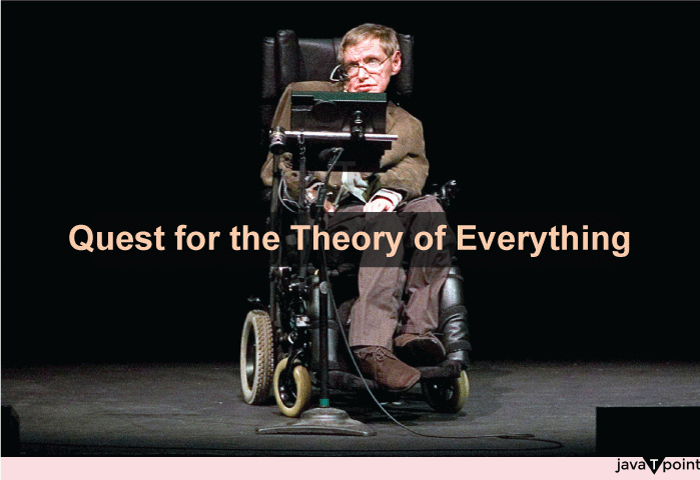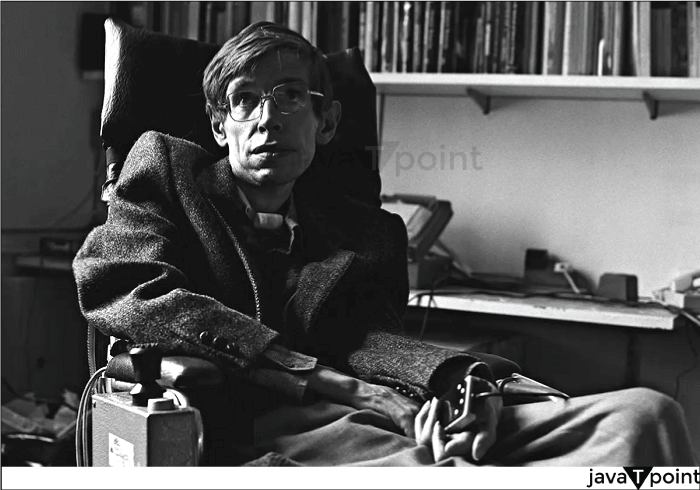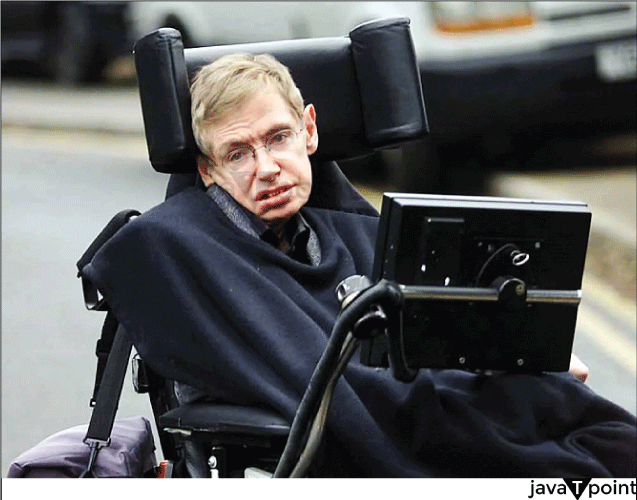Quest for the Theory of EverythingIntroductionOne of the most famous scientists of the contemporary era, Stephen Hawking, is introduced in this chapter. 
Despite suffering from a severe illness that made him helpless, Hawking persisted in pursuing knowledge and eventually rose to prominence as one of science's most notable and well-known people. Initial Speech
On April 29, 1980, academic luminaries and scientists came to hear Stephen Hawking, a newly appointed mathematics professor at 38, delivered his maiden lecture. 'Is the End in Sight for Theoretical Physics?' was the title of the speech. Hawking shocked his audience by saying that he believed it to be accurate and inviting them to discover a theory that explained the universe and all that occurs in it. While one of his students read his lecture, he sat silently in a wheelchair. Hawking seemed like something other than the type of adventure leader just by the look. Childhood and College Years Life
On January 8, 1942, Stephen William Hawking was born in Oxford, England. The parents of Stephen Hawking, Frank, and Isobel were not wealthy but valued education. They intended for Stephen to attend London's prestigious Westminster Public School. However, Stephen was unwell when the scholarship test was being administered. He so went to Saint Alban's School in the neighborhood. He began seriously considering being a scientist at the age of eight. Although his father pushed him to pursue medicine, Stephen thought biology was too nebulous. Stephen was a typical schoolboy, sluggish to pick up reading, and had terrible writing ability. Stephen wanted to study math and physics when he was fourteen. His father was not satisfied because there was only employment in mathematics teaching. Additionally, he wanted his kid to attend Oxford, his university, which did not teach mathematics. Stephen went to Oxford to study natural science with a focus on physics on his father's advice. He enrolled in University College, the oldest college in Oxford and his father's institution. He was first depressed and lazy. But soon, he started to like Oxford. He was well-liked, had long hair, was well-known for his humor, enjoyed science fiction and classical music, and engaged in sports. He applied to Cambridge to pursue a Ph.D. and was admitted with the stipulation that he receive a "First" from Oxford. However, he ultimately found himself hovering between a first and a second. He has eventually welcomed, nevertheless, thanks to a clever comment. His lack of a mathematical foundation made general relativity particularly challenging during his first year at Cambridge. Hawking had begun to stumble during his third year at Oxford. Cambridge saw a worsening of this. Living with the Illness
In 1963, not long after turning 21, he was diagnosed with amyotrophic lateral sclerosis, a rare condition for which no treatment exists. The spinal cord and brain's nerve cells began to disintegrate as a result gradually. He had severe depression and was unsure about his future. The physicians had hoped that Hawking's health would improve, but instead, it deteriorated. He was told he only had a few years left to live. Thankfully, after those two years, the disease's development slowed. Death and total incapacity were put off for a while. Hawking first met Jane Wilde at a Saint Alban's New Year's Eve celebration before going to the hospital for testing. She found him to be engaging and enjoyed his humor. When Jane saw him again after he was released from the hospital, he was pathetic, but neither his physical nor mental state deterred her. 
Her positivity was something Hawking respected, and their friendship took time to grow. He applied for a research scholarship at one of the Cambridge colleges, Caius, and was approved. He and Jane married in July 1965. Hawking used a walking stick for walking the university corridors and had a little speech impediment. While other young researchers remained mute, he dared to pose surprising questions during meetings with some of the most prominent scientists in the world. Then his status as "a genius" and "another Einstein" was established. In 1980, he considered authoring a book on the universe due to a financial need. He wrote the book to explain science to those who are not scientists. In 1984, he finished the first draft and traveled to Switzerland. He developed pneumonia there and was put on life support. His tracheotomy preserved his life but rendered him speechless. Hawking was forced to use a permanent neck opening since he could no longer breathe via his mouth or nose. After receiving extensive treatment for several weeks, he returned home to Jane and his three kids. He was still sick and too weak to carry on with his studies. The Equalizer application, supplied to Hawking by Californian computer specialist Walt Woltosz, allowed him to choose words from the screen. A Brief History of Time was released in 1988 with the help of Hawking's student Brian Whitt. An edited version was released in September 2005. The book has a lot of paradoxes. That Hawking has been able to accomplish so much and is still alive is a miracle. When exposed to his knowledge and humor, you realize you shouldn't take his severe physical issues as seriously as he does. Stephen Hawking overcame his debilitating illness to get to the top of the physics world. ConclusionDespite the challenges he faced, Hawking continued achieving his goal and became one of the most brilliant minds of all time. Despite everything in our way, his life and journey inspire us always to try our best. https://englishsummary.com/lesson/quest-for-the-theory-of-everything-lesson-summary-and-explanation-in-english-class-11th/
Next TopicIce Candy Man Summary
|
 For Videos Join Our Youtube Channel: Join Now
For Videos Join Our Youtube Channel: Join Now
Feedback
- Send your Feedback to [email protected]
Help Others, Please Share









